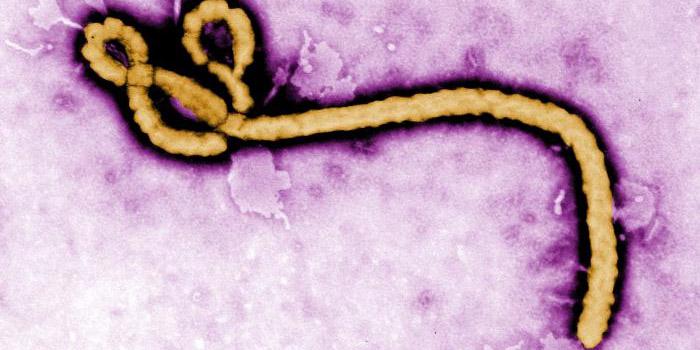DARPA Pursuing AI to Accelerate Disease Cures
The Defense Advanced Research Projects Agency (DARPA) is in the midst of reviewing proposals for the Make-It program, which aims to automate the discovery and synthesis of small molecules, offering a range of potential benefits, including dramatically accelerating the rate at which scientists cure diseases.
Anne Fischer, a program manager within DARPA’s Defense Sciences Office, discussed the Make-It program Wednesday, along with the closely related Accelerated Molecular Discovery program, during the agency’s Artificial Intelligence (AI) Colloquium in Alexandria, Virginia. Both programs are part of a DARPA effort to advance the state of the art in AI for a wide range of uses, including the acceleration of chemical discoveries.
Fischer noted that in 2014 an outbreak of Ebola ravaged West Africa, killing more than 10,000 people. In the midst of the calamity, researchers around the globe raced to find a cure for the spread of the disease. By the summer of 2015, they announced that a trial vaccine had been developed. “This was an incredible achievement, a testament in part to our technology, but also to the investment of the time and resources of scientific talent around the globe,” she said.
Still, she envisions a world in which AI helps find such cures much faster. “Imagine a world in which we can develop a new therapeutic to an emerging threat or disease in a matter of days instead of the six, 12 or 24 months that it takes today. Imagine a world in which we can not only develop a therapeutic that is safe and effective to use, but one [for which] we also can develop stable and scalable methods of production, again, in a number of days,” Fischer suggested. “This is the world that could be enabled by the efficient application of AI and automation to chemistry. It’s a molecular world.”
AI applied to chemistry could offer wide-ranging benefits. “We can think of this in the context of human health, coatings and protection, energy storage and distribution, food security and computing. The list is seemingly endless because molecules are the building blocks to modern life,” Fischer said. “Chemistry enables our modern life. Chemical discovery is critically important across many sectors.”
During an interview in the days leading up to the AI colloquium, Valerie Browning, the director of DARPA’s Defense Sciences Office, and John Everett, deputy director of the Information Innovation Office, also touted the promise of AI in the world of chemistry. “AI has been very useful in developing … an ability to survey many, many, many different synthesis routes and come up with new ways of making molecules that we already know about that have known function,” Browning said. “There might be lots of reasons you would want to do that. Maybe it’s too expensive to make with the methods we have now. Maybe we want to make it through a different set of materials. There are lots of different reasons we might want to find a different pathway to get to the same molecule.”
But using AI to discover and synthesize entirely new molecules is a different matter. “We’re not yet able to apply similar AI approaches to discovering new molecules with desired functionality,” Browning reported.
In the pre-colloquium interview, Everett predicted other ways that AI may aid breakthroughs in medicine. He mentioned another program known as Big Mechanism, which aims to build AI systems capable of reading and understanding vast numbers of research papers and deriving causal relationships. The program already has helped in the understanding of a protein implicated in cancer. “Maybe we have the solution to cancer, but it’s hidden away in thousands of papers in some library, and you have to go read all those papers and assimilate all of that information. This is a first step in being able to pull this information out,” Everett said, adding that the Big Mechanism program ends this year.
Fischer indicated that AI and humans have their strengths and weaknesses when it comes to scientific discovery. “If we think about this in the context of what a human does, we think about a chemist sitting down and reading papers, joining different concepts together in their minds, analyzing molecules, looking at structures, projecting what the properties of that molecule might have, synthesizing, producing molecules, so that they can ultimately discover new molecules with desired properties,” she said. “Humans are very good at these activities, but slow. Machines are very fast, but bad."
Machines are improving, but challenges remain. For example, scientists do not yet know how to represent molecules in ways that a computer can understand or how to train a computer to recognize the features and physics that affect molecular properties. “We need to think very carefully about how the human cognition of reading papers really interacts with the data acquisition that we can train a computer to do,” she offered.
DARPA’s intent is to overcome those challenges. “DARPA’s currently working at the nexus of AI and chemistry to realize this ultimate vision, to elucidate the foundation pillars on which this ultimate vision can come to fruition,” Fischer said. “We’re working to accelerate the rate at which we can discover meaningful chemistries, to evolve the next new medicine, the next new coatings, the next new fuels, in a matter of days, not in a matter of years.”





Comment
Are there any AI projects
Are there any AI projects going on now to address Multiple Sclerosis research?
Comments